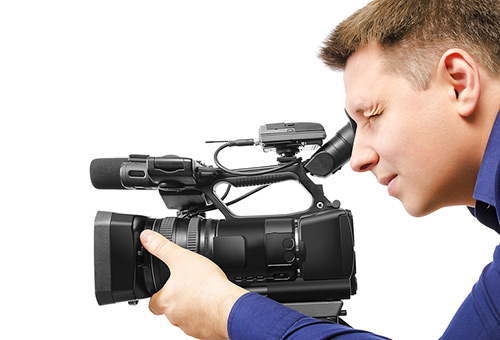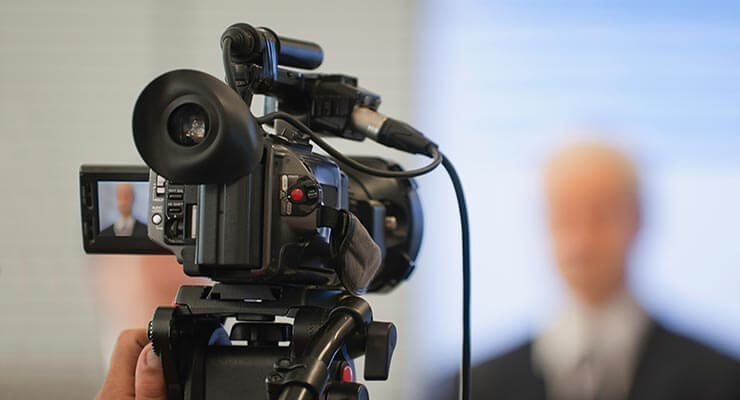The Importance of Lawful Videography in Modern Legal Proceedings
In contemporary legal settings, the assimilation of lawful videography has ended up being progressively considerable, serving as an important device in the documentation and discussion of proof. As the lawful landscape progresses with technological innovations, the ramifications of high-quality videography prolong beyond mere paperwork, raising vital inquiries regarding its effect on judicial results and the total honesty of the lawful process.
Definition of Lawful Videography
Legal videography describes the specialized technique of recording audio and aesthetic material for use in lawful settings. This method incorporates numerous kinds of recordings, consisting of depositions, witness declarations, and trial presentations, which serve to document crucial elements of lawful proceedings. The primary objective is to create an accurate and dependable visual document that can be utilized in court or for pre-trial prep work.
Legal videographers are educated professionals who make use of innovative recording tools and techniques to make certain high-quality video clip and audio capture. They are well-versed in the lawful criteria and requirements governing the admissibility of video evidence, making their proficiency important in the lawful process.

Benefits in Lawful Procedures
The incorporation of legal videography right into modern lawful procedures supplies various advantages that enhance both the effectiveness and effectiveness of the judicial process. One key advantage is the precise and irreversible documentation of court procedures, which can be very useful for charms and record-keeping. Unlike traditional transcription methods, video clip catches non-verbal hints and the overall context of testimonies, providing a richer, more nuanced account of events.
Moreover, lawful videography can enhance the discussion of evidence (legal videography). By visually demonstrating aspects of an instance, such as crash reconstructions or expert evaluations, lawyers can share complicated details much more successfully, making it easier for courts and juries to comprehend important points. This can result in more educated decision-making and end results
Additionally, legal videography advertises access. Tape-recorded depositions can be evaluated from another location, enabling legal groups to prepare more thoroughly without the restrictions of geographical restrictions. This benefit help in instance prep work and strategy development.
Finally, the specialist top quality of videography lends trustworthiness to the process, strengthening the seriousness and significance of the lawful process. legal videography. In recap, legal videography substantially adds to a much more transparent, efficient, and impactful judicial system


Enhancing Witness Testimonies
Witness testimonies play a vital duty in legal proceedings, and the usage of videography substantially enhances their effect and efficiency. By catching the subtleties of a witness's behavior, tone, and body language, legal videography supplies an extensive understanding of the testimony that written records alone can not share. This graph aids in preserving the witness's initial declarations, making certain that jurors and lawyers can perceive the statement in its desired form.
In addition, videography enables for a more interesting discussion of proof, as jurors are typically extra responsive to audio-visual materials contrasted to traditional paperwork. The ability to observe a witness's emotion boosts the credibility of their statements, thus enhancing the influential power of their testament. In addition, video clip recordings can be utilized for training and prep work, allowing attorneys and witnesses to assess and refine their discussions.
In cases where witnesses may be inaccessible for trial, videography makes sure that their testimonies can still be provided, safeguarding the honesty of their accounts. Generally, the integration of videography in legal proceedings noticeably enhances the quality and reliability of witness statements, find out this here fostering a much more enlightened and fair judicial procedure.
Effect on Jury Understanding
Catching witness statements on video not only improves their shipment but likewise considerably influences court understanding of the case. The visual and auditory components of video clip recordings provide jurors with an extra immersive experience, permitting them to regard subtleties in tone, body movement, and psychological expressions that may be shed in written transcripts. This multi-sensory interaction fosters a much deeper link with the statement, helping jurors in understanding the complexities of the case.
In addition, legal videography can help clear up detailed information and make certain that bottom lines are offered in a coherent way. Jurors frequently value the possibility to review essential statements during considerations, reinforcing their understanding of the proof. The capacity to observe a witness's temperament can additionally impact their reputation assessment, as jurors might create judgments based on aesthetic cues that reverberate with their assumptions of truthfulness and reliability.
Moreover, using video can improve the discussion of proof, making it more obtainable and remarkable for jurors. Overall, the critical execution of lawful videography plays a pivotal function in enhancing jury understanding, ultimately adding to a fairer and a lot more educated lawful process.
Future Trends in Legal Videography
Progressively, lawyers are identifying the transformative potential of emerging technologies in legal videography. As the legal landscape progresses, the assimilation of expert system (AI) and machine learning is readied to transform the way video evidence is recorded, refined, and presented. AI algorithms can assess huge amounts of video footage to recognize relevant sectors, enhancing effectiveness and guaranteeing that vital details is not forgotten.
Additionally, innovations in digital fact (VIRTUAL REALITY) and enhanced reality (AR) are learn the facts here now positioned to provide immersive experiences in courts. These modern technologies allow jurors to imagine crime scenes or comprehend complex scenarios in an extra engaging fashion, possibly boosting their comprehension and retention of proof.
The increase of cloud-based remedies likewise promotes the safe and secure storage space and sharing of video evidence, enabling smooth partnership amongst legal groups. legal videography. As remote hearings end up being extra commonplace, top notch legal videography will certainly play a necessary duty in ensuring that remote testimonies are caught precisely and offered effectively
Final Thought
In conclusion, lawful videography functions as a crucial device in modern legal proceedings, boosting the precision and quality of proof discussion. By recording witness statements in a visual format, it assists in a my explanation much deeper understanding for jurors and protects vital statements for future reference. As innovation remains to progress, the combination of premium videography is expected to increase, additionally strengthening its function in advertising the honesty and performance of the lawful procedure.